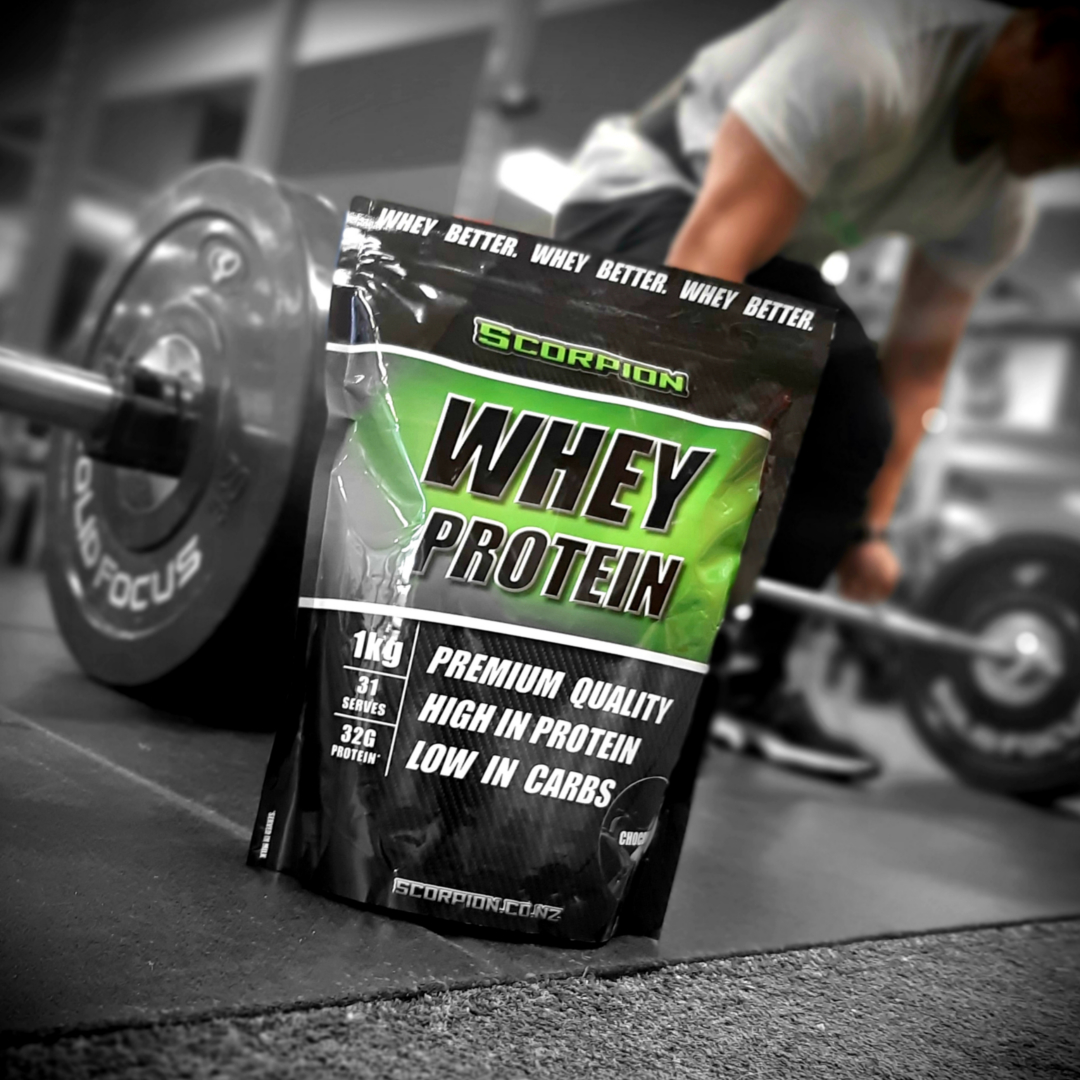As with most things in nutrition, there’s no simple answer. Your individual needs depend on your health, body composition, training goal, and level of physical activity (type, intensity, and duration). And even taking all this into account, you’ll end up with a starting number, which you’ll need to adjust through self-experimentation as you progress!
How much protein do I need daily?
Daily requirements are expressed in grams of protein, either per kilogram of body weight (g/kg) or per pound of body weight (g/lb). Ranges in the table below reflect known individual variances.
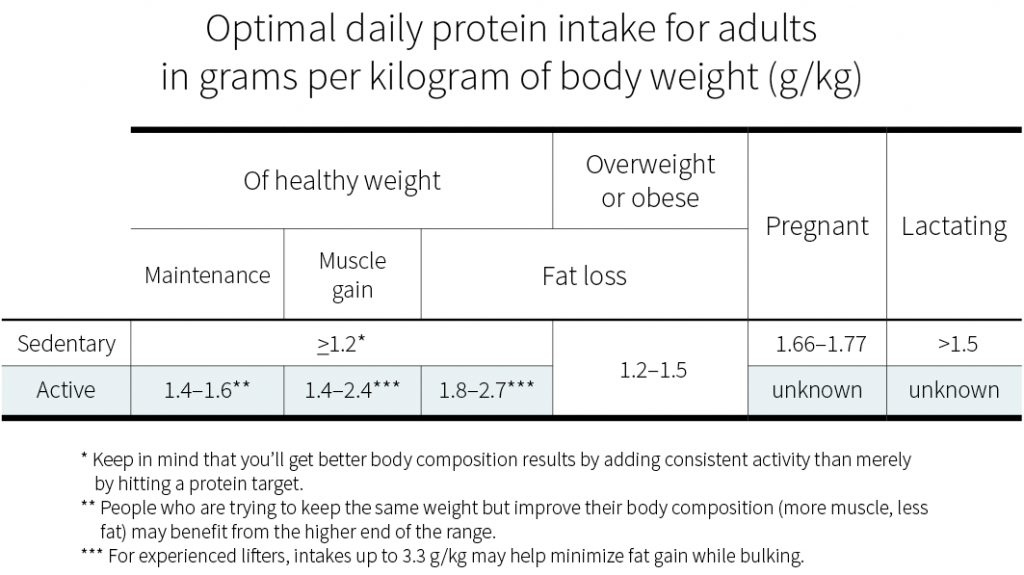
Below are some general guidelines:
- If you’re sedentary, aim for at least 1.2 g/kg (0.54 g/lb). Keep in mind that your body composition will improve more if you add consistent activity, especially resistance training, than if you merely hit a protein target.
- If you’re of healthy weight, active, and wish to build muscle, aim for 1.4–2.4 g/kg (0.64–1.09 g/lb). If you’re an experienced lifter and bulking, intakes of up to 3.3 g/kg (1.50 g/lb) may help you minimize fat gain.
- If you’re of healthy weight, active, and wish to lose fat, aim for 1.8–2.7 g/kg (0.82–1.23 g/lb), skewing toward the higher end of this range as you become leaner or if you increase your caloric deficit (by eating less or exercising more).
- If you’re overweight or obese, aim for 1.2–1.5 g/kg (0.54–0.68 g/lb). This range, like all the others in this list, is based on your total body weight (most studies on people who are overweight or obese report their findings based on total body weight, but you’ll find some calculators that determine your optimal protein intake based on your lean mass or your ideal body weight).
- If you’re pregnant, aim for 1.66–1.77 g/kg (0.75–0.80 g/lb).
- If you’re lactating, aim for at least 1.5 g/kg (0.68 g/lb).
What is the optimal amount of protein I need per day if I am sedentary?
For adults, the US Recommended Dietary Allowance (RDA) for protein is 0.8 g/kg. However, a more appropriate statistical analysis of the data used to establish the RDA suggests this number should be higher: 1.0 g/kg.
Note that, contrary to popular belief, the RDA doesn’t represent an ideal intake. Instead, it represents the minimum intake needed to prevent malnutrition. Unfortunately, the RDA for protein was determined from nitrogen balance studies, which require that people eat experimental diets for weeks before measurements are taken. This provides ample time for the body to adapt to low protein intakes by down-regulating processes that are not necessary for survival but are necessary for optimal health, such as protein turnover and immune function.
An alternative method for determining protein requirements, called the Indicator Amino Acid Oxidation (IAAO) technique, overcomes many of the shortcomings of nitrogen balance studies. For example, it allows for the assessment of protein requirements within 24 hours, thereby not leaving the body enough time to adapt. Studies using the IAAO method have suggested that about 1.2 g/kg is a more appropriate RDA for healthy young men, older men, and older women.
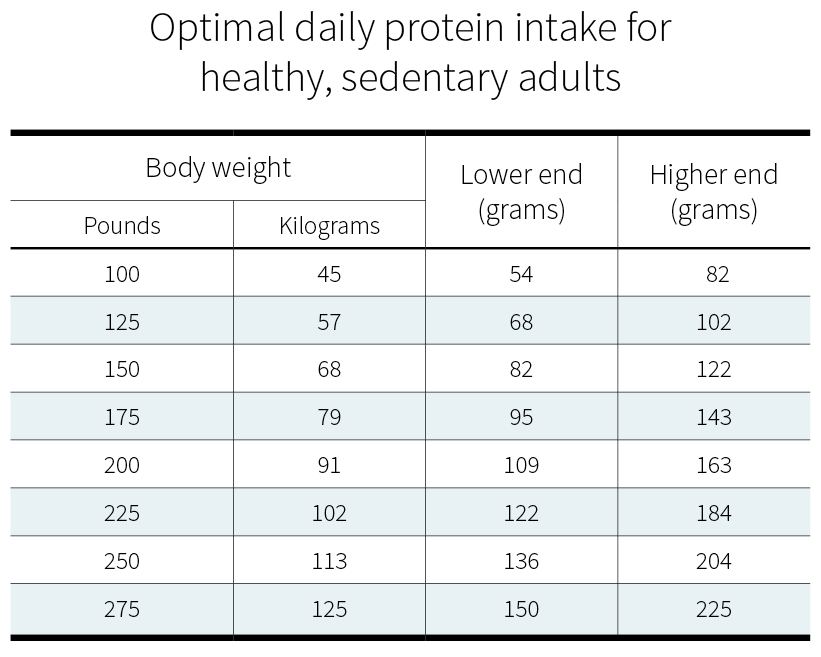
What is the optimal daily intake of protein for athletes and active adults?
If you’re physically active, you need more protein daily than if you were sedentary. The American College of Sports Medicine, the Academy of Nutrition and Dietetics, and the Dietitians of Canada recommend 1.2–2.0 g/kg to optimize recovery from training and to promote the growth and maintenance of lean mass when caloric intake is sufficient. This recommendation is similar to that of the International Society of Sports Nutrition (1.4–2.0 g/kg).
Importantly, it may be better to aim for the higher end of the above ranges. According to the most comprehensive meta-analysis to date on the effects of protein supplementation on muscle mass and strength, the average amount of protein required to maximize lean mass is about 1.6 g/kg, and some people need upwards of 2.2 g/kg.
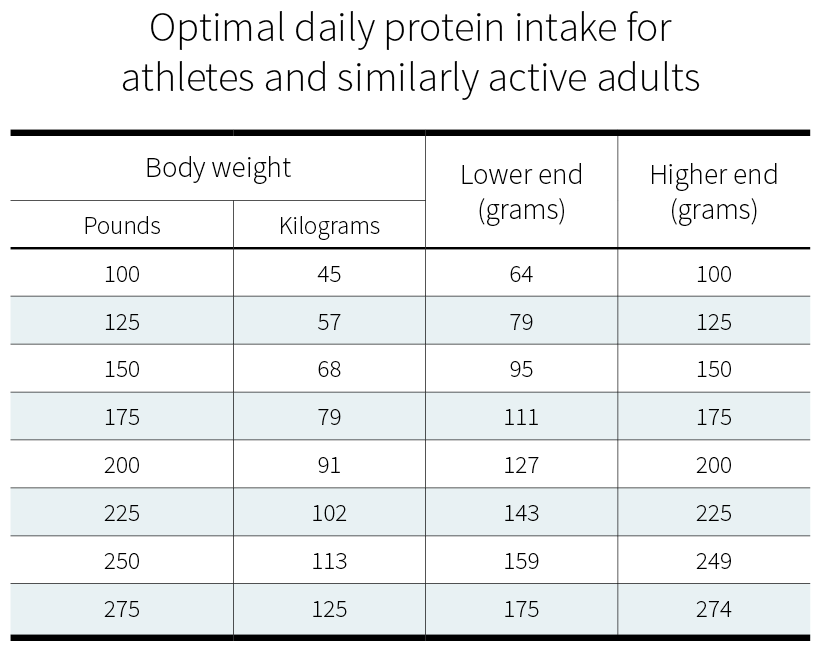
What is the optimal daily intake of protein for muscle growth?
Resistance training, such as lifting weights, is of course required for muscle gain: you can’t just feed your muscles food and expect them to grow; you need to also cause physical stress to induce growth, repair and adaptation.
Assuming progressive resistance overload and a mild hyper-caloric diet (370–800 kcal above maintenance), a few studies suggest you’ll gain less fat if you eat more protein (3.3 g/kg rather than 1.8–2.6 g/kg).
What’s important to understand is that a daily protein intake of 3.3 g/kg isn’t likely to help you build more muscle than a daily protein intake of 1.8–2.6 g/kg. What the higher number can do is help you minimize the fat gains you’ll most likely experience if you eat above maintenance in order to gain (muscle) weight.
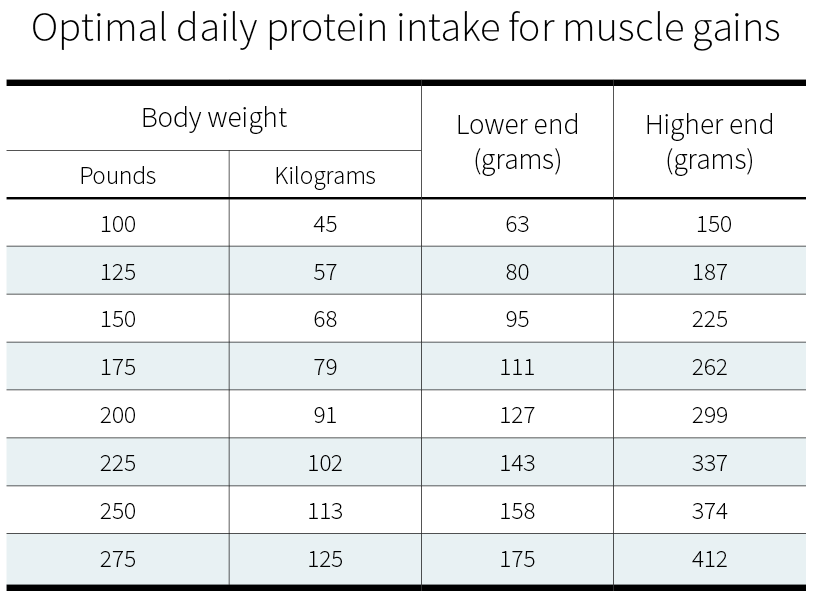
What is the optimal daily intake of protein for fat loss?
High protein intakes help preserve lean mass in fat loss diets, especially lean individuals. An early review concluded that, to optimize body composition, dieting athletes should consume 1.8–2.7 g/kg. Later studies have argued that, to minimize lean-mass loss, dieting athletes should consume 2.3–3.1 g/kg (closer to the higher end of the range as leanness and caloric deficit increase). This latter recommendation has been upheld by the International Society of Sports Nutrition.
Note that those recommendations are for people who are relatively lean already. Several meta-analyses involving people with obesity suggest that 1.2–1.5 g/kg is an appropriate daily protein intake range to maximize fat loss. This range is supported by the European Association for the Study of Obesity, which recommends up to 1.5 g/kg for elderly adults with obesity. It is important to realise that this range is based on actual body weight, not on lean mass or ideal body weight.
Considering the health risks associated with obesity, it is also noteworthy that eating a diet higher in protein (27% vs. 18% of calories) significantly reduces several cardio-metabolic risk factors, including waist circumference, blood pressure, and triglycerides, while also increasing satiety. These effects are small, however, and likely dependent on the amount of body fat one loses.
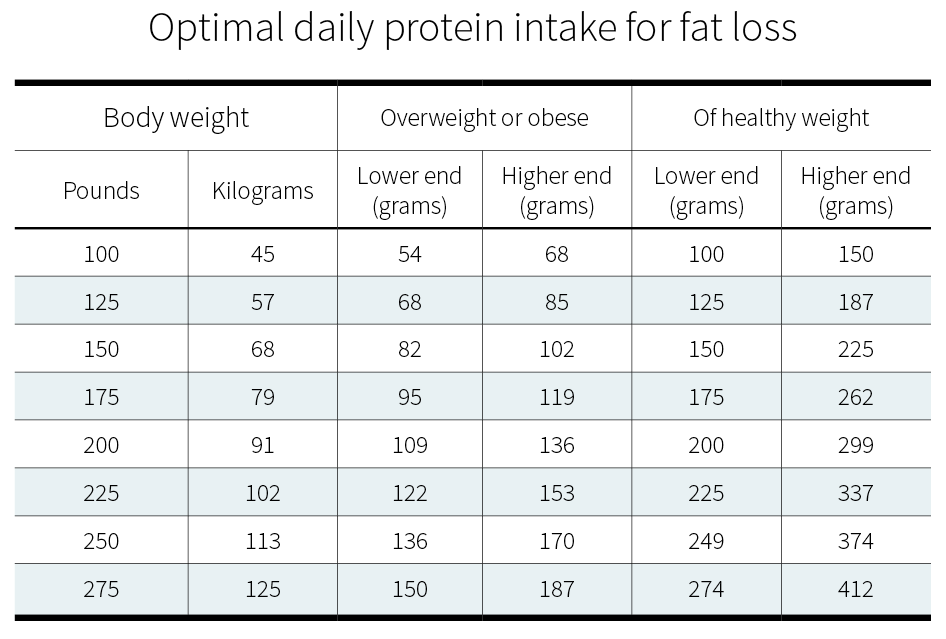
What is the optimal daily intake of protein for pregnant women?
The protein RDA for pregnant women is 1.1 g/kg. This value was estimated by adding three values: – The RDA for a healthy adult (0.8 g/kg) – The amount of additional body protein a pregnant woman accumulates – The amount of protein used by the developing fetus However, as we saw previously with non-pregnant healthy adults, the RDA may not be sufficient, let alone optimal. There’s some evidence with the IAAO method that the RDA for pregnant women should be about 1.66 g/kg during early gestation (weeks 11–20) and 1.77 g/kg during late gestation (weeks 32–38). Moreover, a meta-analysis of 16 intervention studies reported that protein supplementation during pregnancy led to reduced risks for the baby:
– 34% lower risk of low gestational weight – 32% lower risk of low birth weight – 38% lower risk of stillbirth. This effect was more pronounced in undernourished women than in adequately nourished women. Importantly, these values were determined from sedentary women carrying one child, meaning that pregnant women who engage in regular physical activity and/or are supporting the growth of twins may need even higher amounts. Also, keep in mind that we can only tell you what the studies reported; we can’t possibly know about your health and your pregnancy specifically.
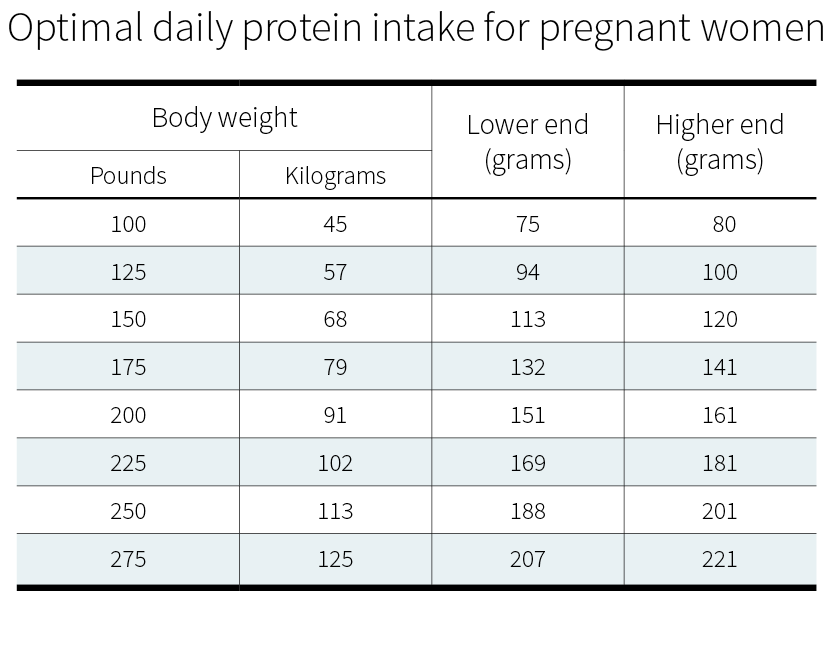
Why choose Scorpion 100% Whey Protein?
Scorpion Whey is a lean muscle builder and general health protein which is designed for those hard training persons and people looking to improve health and vitality. Derived from NZ grass fed cows, Scorpion WPC has a very high protein percentage (80% vanilla) which will deliver a full spectrum of desirable amino acids that will benefit your body. Scorpion 100% Whey protein is highly bio-available, rich in essential amino acids (EAAs), and quickly digested. Blended into OUT OF THIS WORLD flavours (including 100% naturally sweetened options), Scorpion 100% Whey tastes amazing and mixes easily after a few shakes! Scorpion 100% Whey is the ultimate protein source!
Try some today! https://scorpionsupplements.co.nz/product-category/whey-protein/


